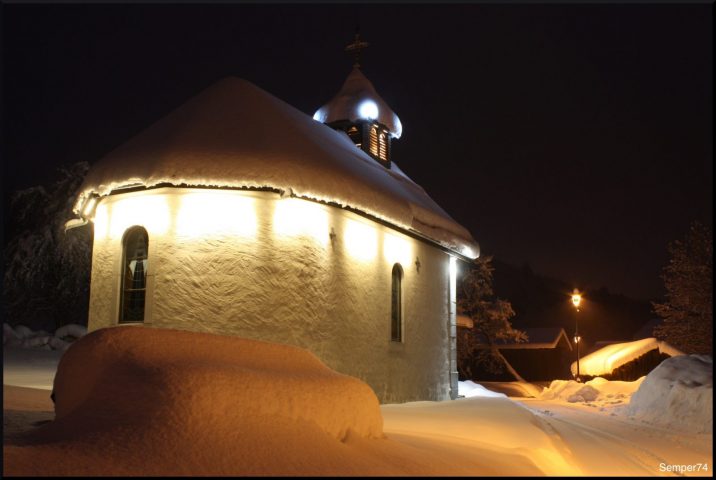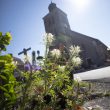Built at the wish of Curate Tronchet following a promise: if he recovered his sight he would construct a chapel on the family land at Le Verney; this actually happened around 1860.
Built at the wish of Curate Tronchet following a promise: if he recovered his sight he would construct a chapel on the family land at Le Verney; this actually happened around 1860. Its facade has a door and two soaring arched windows topped with an oculus and a niche, all in cut stone. A cross extends the door lintel. The nave (12m by 6m) ends in an apse in cul de four and houses a neo-gothic altarpiece, the stations of the cross painted in blue and red and a few assorted chairs. The weathercock has been stolen. The last restoration dates from August 1985. In 1457 the residents of Le Verney and L’Estelley founded the Brotherhood of the Holy Spirit with the aim of invoking divine clemency against flooding by the Verney torrent. Such flooding was seen several times between 1401 and 1441, causing dramatic damage to be reproduced throughout local history; the last occurred in 1945, following which embankment and control works were carried out with the participation of German prisoners of war. Each year, on the Tuesday of Pentecost, the members of the brotherhood went to the flooded land after mass to distribute bean and pea soup with a pound of bread known as "Holy Spirit Bread" to the poor: the 14-18 war brought an end to this practice. The Brotherhood of the Holy Spirit also put money towards fighting the plague: the notary Delacoste collected donations to this effect as of 1610. These increased from 1630, the year the plague arrived in the Giffre valley; Jacquemotte Favre from the tower of L'Estelley lost two children and endowed the brotherhood with 200 florins.
Types
- Historic site and monument
Themes
- Religious heritage
- Chapel
Opening
All year: open every day.


